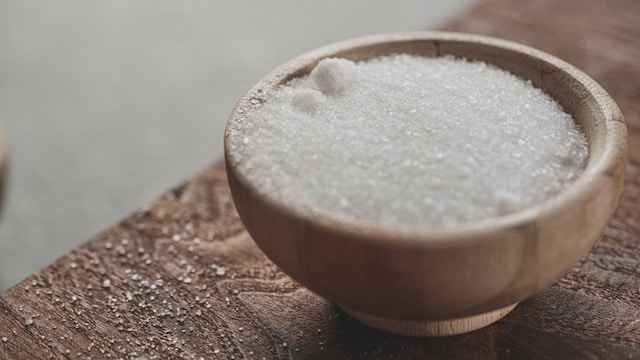If you are concerned about the ethical implications of using bone char, look for brands that explicitly state that they do not use this material in their salt processing. Opting for unrefined or minimally processed salt can also be a good choice for those who want to avoid heavily processed foods.
In addition to the different types of salt, there are also different grades of salt, which can impact the taste and texture of your food. For example, fine-grain salt dissolves quickly and evenly, making it a good choice for baking and cooking, while coarse-grain salt can be used for finishing dishes and adding texture.
It’s important to note that while salt is an essential nutrient, consuming too much salt can have negative health consequences. The American Heart Association recommends that adults consume no more than 2,300 milligrams of sodium per day, which is the equivalent of about one teaspoon of salt. However, many people consume much more than this, often due to the high amounts of salt added to processed foods.
Is Salt Vegan?
As more and more people embrace a vegan lifestyle, the question of whether certain foods and products are vegan or not has become increasingly important. Salt is a commonly used ingredient in many recipes and it’s natural to wonder whether it’s vegan or not. In this article, we’ll explore the question of whether salt is vegan, and what you need to know about the different types of salt.
What is Salt?
Salt is a mineral composed primarily of sodium chloride (NaCl). It is an essential nutrient that is required for the proper functioning of the human body. Sodium is involved in many bodily functions, including regulating blood pressure, maintaining fluid balance, transmitting nerve impulses, and supporting muscle contractions. Chloride is also important for maintaining proper fluid balance and aiding in the digestion process.
Salt is found in many different forms in nature, including sea salt, rock salt, and table salt. Sea salt is made by evaporating seawater, while rock salt is mined from underground salt deposits. Table salt is usually refined salt that has been mined or extracted from seawater and processed to remove impurities.
Is Salt Vegan?
The short answer is yes, salt is vegan. Salt is a mineral that is obtained from natural sources and does not involve the exploitation or killing of animals. However, some types of salt may not be considered vegan due to the way they are processed or the addition of other ingredients.
For example, some brands of table salt may be processed with animal byproducts such as bone char. Bone char is a material obtained by burning animal bones and is commonly used to remove impurities from sugar and salt. While the use of bone char does not make salt a non-vegan product, some vegans may choose to avoid it due to ethical concerns.
To ensure that your salt is vegan-friendly, look for brands that specifically state that they do not use bone char in the processing of their salt. Many brands also offer unrefined or minimally processed salt that is considered more natural and may be a better option for those who want to avoid heavily processed foods.
Types of Salt
As mentioned earlier, there are many different types of salt, each with its own unique characteristics. Here are some of the most common types of salt you may come across:
1. Sea Salt
Sea salt is made by evaporating seawater and is often considered to be a more natural and healthier option compared to table salt. It typically contains trace amounts of other minerals such as magnesium, potassium, and calcium, which can add flavor and nutrition to your food.
2. Rock Salt
Rock salt is mined from underground salt deposits and is typically less refined than table salt. It has a coarse texture and is often used in salt grinders or for making homemade ice cream.
3. Table Salt
Table salt is the most commonly used type of salt and is usually heavily processed to remove impurities and add anti-caking agents. It is often fortified with iodine, a mineral that is important for proper thyroid function.
4. Kosher Salt
Kosher salt is a type of coarse salt that is used in Jewish cooking. It is less refined than table salt and has a larger grain size, making it easier to handle and control the amount of salt added to a dish.
5. Himalayan Salt
Himalayan salt is a type of rock salt that is mined from the Himalayan mountains. It is typically pink in color and is believed to contain trace amounts of minerals that are beneficial for health.
Conclusion
In summary, salt is a mineral that is obtained from natural sources and is considered vegan. While some types of salt may not be suitable for vegans due to the use of bone char in processing, there are many brands available that offer vegan-friendly options. When choosing salt, it’s important to consider the different types and their unique characteristics to find the best option for your needs.
In conclusion, salt is considered vegan and is an essential ingredient in many recipes. However, it’s important to be aware of the different types and grades of salt available and to choose a brand that aligns with your ethical concerns. Additionally, it’s important to monitor your salt intake and aim to consume no more than the recommended daily amount to maintain good health.

